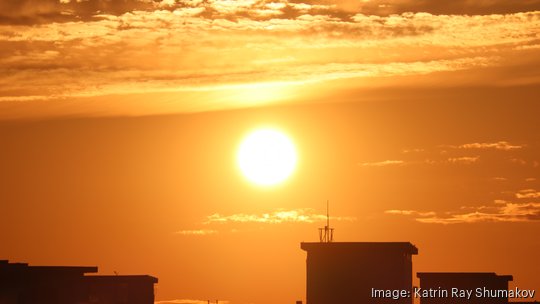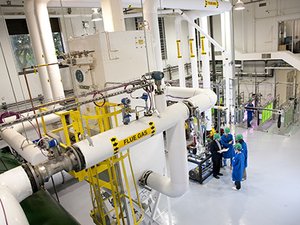
The U.S. Department of Energy (DOE) has issued funding for a Climate Resilience Center at Saint Louis University to build regional resilience to heat islands, where high urban density causes higher temperatures in cities than the surrounding countryside.
The SLU project, called Advancing Development and Climate-Resilient Adaptation Practices via Community-Driven Urban Transformation, will connect researchers with local communities to define the impacts of climate risk and increase awareness of the effects of climate change so that communities can support resilience projects and green infrastructure improvement.
Orhun Aydin, a geostatistician and assistant professor of earth and atmospheric science in SLU's School of Science and Engineering, is leading the team with seven other academics, and the grant is for $964,848.
The DOE announced $10 million in funding for Climate Resilience Centers in 10 states on Aug. 15.
“Every pocket of the country has experienced the impact of extreme weather events that are exacerbated by climate change, and disadvantaged communities often feel the brunt of that impact,” said U.S. Secretary of Energy Jennifer Granholm in a statement. “The projects announced today will leverage the world class expertise and scientific research capacities of DOE’s national laboratories to develop the tools communities will need to inform future decisions for building resiliency.”
Environmental Protection Agency-tracked heat-related deaths in the United States have spiked since the late 2010s. The EPA said in a June report that evidence shows there may be more than 1,300 deaths from extreme heat every year. The city of St. Louis's 2018 Climate Vulnerability Assessment found extreme heat to be the region's biggest climate hazard during increasingly long and increasingly hot summers.
Strategies to improve urban resilience to the heat island effect include planting trees, painting roofs white or reflectively and green infrastructure investments in energy and public health.









